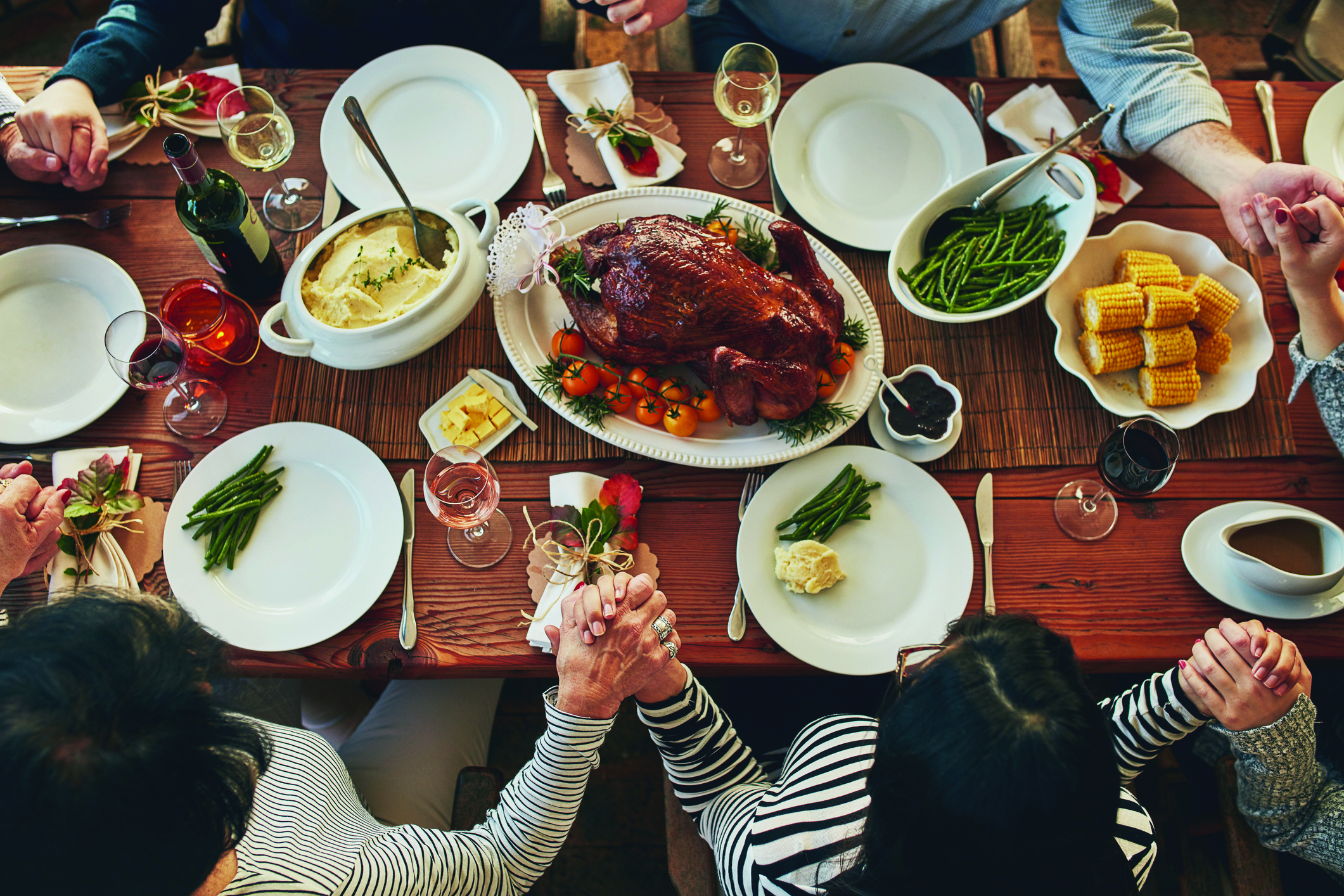
This month, we celebrate Thanksgiving in this country. It is a time when we pause to thank and praise God for the many blessings we have received. Personally, it is one of my favorite holidays, not just because of the good food. Mostly, it is one of my favorites because it reminds me of the most important thanksgiving feast of all — the Eucharist, which we celebrate every day, and which is a foretaste and participation in the heavenly banquet.
At Thanksgiving, we gather as family and friends to spend time together conversing or watching programs on TV, culminating in sharing the abundant food prepared by the host and others. As part of this meal, the participants acknowledge and express thanks for the many blessings they have received. The celebration unites us with one another, and we feel blessed. Furthermore, often it inspires us to share that blessing with others in need. So, we praise and thank God; to thank and praise God is to bless God who blesses us. Indeed, it is a special event.
In the Eucharist, we gather for a special event also: the salvation Jesus Christ provides us through his birth, life, Passion, Death and Resurrection. This is the Paschal Mystery, and so, we come to a special room, the church. We gather around a special table — the altar — as a family, the family of those who have been made brothers and sisters of the Lord through Baptism. In this place, we hear words of love, of encouragement and of gratitude from our host — the Lord himself — speaking to us through the Scriptures. We respond, with our own words of love and trust, through the responses to the readings, the singing of hymns and the offering of prayers.
The centerpiece of this feast is the great thanksgiving prayer — the Eucharistic Prayer — followed by the sharing of very special food, food from heaven: the Bread of Life and the Chalice of Salvation, the Blessed Sacrament and the Precious Blood, the Body and Blood of Christ. And just like a Thanksgiving feast can unite those present and convey to them a sense of well-being, so it is with the Holy Mass: we become what we consume — the Body of Christ for the world. We come hungry: hungry for life, hungry for healing, hungry for guidance, hungry for grace, hungry for mercy. Also, just like at the family thanksgiving feast, there is an exchange. We give ourselves, our lives, to the Lord when we participate in the Eucharist. In exchange, we receive the fullness of life; that is, the Lord himself.
I praise and bless God for this great privilege. I praise and bless God for the gift of faith. I praise and bless God for a place where we can gather. I praise and bless God for the gift of you, people of faith. I pray that you and I will never withhold from God whatever he asks of us.
Whatever you give thanks and praise to God for, take it to your Thanksgiving meal. Whatever you give thanks and praise for then, bring back to the Eucharist. For in the Eucharist, we are to find our lives celebrated, and the Eucharist is to be found in the living out of our daily lives in turn. This is the Holy Eucharist as thanksgiving.
The Catechism of the Catholic Church gives various names for the Church’s central celebration of the Paschal Mystery. “Eucharist” is the primary name the Church gives this celebration. There are other names such as the Lord’s Supper, the breaking of bread, the synaxis or Eucharistic Assembly, the memorial of the Lord’s Passion and Resurrection, the Holy Sacrifice of the Mass, the Holy and Divine Liturgy, Holy Communion, and the Holy Mass.
The word “Eucharist” comes from the Greek “eucharistía” made up of two words: “eu” (good) and “charistia” (grace). So literally “eucharistía” means “good grace.” It’s the word used in Scripture for thanks and praise. So we gather in church for “eucharistía,” to give thanks and praise to God who has convened us here and is forming us into a community; to give thanks and praise to God for the salvation and reconciliation he is providing us; to give thanks and praise to God for the graces he gives us through the holy sacrifice of the Mass; to give thanks and praise to God for the guidance he gives us through his word; to give thanks and praise to God for making us his partners in extending his reign into the world as instruments of his healing. Most importantly, we give thanks and praise to God for the grace of loving us into life and for providing us a way to find the fullness of life he wants for us — eternal life — through our communion in the Body and Blood of Christ.
Eternal life. Eternal life is where every longing, every desire, every need for more is satisfied because we become fully what God has intended for us all along. That is why the Eucharist is thanksgiving.
